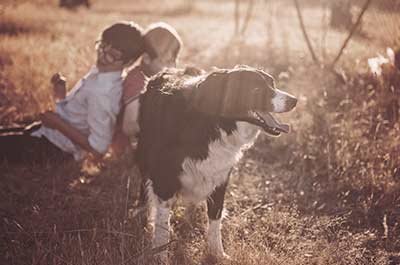Whether you’re looking for a place to get away from the hustle and bustle of the city or raise your kids in a more rural environment, living in the middle of nowhere has its pros and cons.
In this blog post, we’ll look at some of the advantages and disadvantages of living in the country. So, if you’re on the fence about moving to the sticks, read on! You may just change your mind…
Pro: You can get away from the hustle and bustle of city life.
Have you ever dreamed of living in the middle of nowhere? If so, then a rural lifestyle might be for you! If you’re sick of the rat race and are looking for a place to slow down and relax, then the middle of nowhere is definitely the place for you. It’s no secret that city life can be hectic. From the never-ending stream of cars and buses to the endless cycle of work, eat, sleep, repeat, it’s easy to feel like you’re on the verge of burning out.

In a smaller town or village, you’ll have the chance to slow down and enjoy a simpler way of life. There will be fewer cars on the roads, and you’ll probably know most of your neighbors by name.
There’s nothing like waking up to the sound of birds chirping outside your window instead of honking horns and sirens. And you’ll never have to worry about finding a parking spot!
So, if you’re tired of dealing with traffic, noise pollution, and crowded public spaces, moving to the country could be a refreshing change of pace. In a rural setting, you’ll enjoy more peace and quiet and have plenty of opportunities to enjoy nature. Whether you’re an avid outdoorsman or simply someone who loves fresh air and open space, a rural lifestyle is definitely worth considering.
Con: You may feel isolated and lonely.
One of the downsides of living in the middle of nowhere is that you may feel isolated from the rest of the world. Moving to a rural area can be quite a shock if you’re used to living in a city or suburb. In a small town, there may not be much to do regarding nightlife and entertainment. Above all, if you’re looking for specific types of entertainment, such as live music or nightclubs, you may have to drive to a larger city to find it.
This can be a problem if you’re single and trying to meet new people. In a small town, it can be challenging to find other singles your age to date or socialize with. And, if you’re not interested in the same things as the people in your town, you may feel bored.
So, If you’re considering moving to the country, it’s essential to ensure that you won’t feel isolated and lonely. Do some research ahead of time to see what kinds of activities and clubs are available in the area. You may also want to consider moving to a rural location close to friends or family, so you’ll have someone to visit on the weekends. Or maybe you’re the type of person who enjoys being alone and doesn’t mind not having a lot of social interaction. If that’s the case, living in the middle of nowhere may be perfect for you!
Pro: You can enjoy a slower pace of life.
If you’re sick of the fast-paced, stressful lifestyle of the city, then moving to the country could be a great way to slow things down. When you live in a city, it can often feel like you’re always on the go – there’s always somewhere to be and something to do. In a rural area, things move at a different pace.
In a smaller town or village, hurrying from one place to the next is no longer necessary. You can take your time walking or biking around town, and you’ll never have to worry about being late for an appointment. There’s no need to rush through your day, and you can enjoy a more relaxed way of life. You can take your time when you’re walking down the street and stop to chat with your neighbor without feeling like you’re rushing. If you want to reduce your stress levels and live a simpler life, then the country may be the perfect place for you.
Con: There may not be enough schools or other amenities in the area for your family’s needs.
Another downside of living in the middle of nowhere is that there may not be enough schools or other amenities in the area for your family’s needs. If you have young children, you’ll want to ensure there are good schools in the area. And, if you have elderly parents or relatives, you’ll want to be sure there are hospitals and other medical facilities nearby.
Before you move to a rural area, it’s vital to do your research and ensure there are good schools and hospitals in the area. You don’t want to be too far from the services you need.
Pro: You can enjoy a simpler way of life.
When you live in a town, you’re usually close to the things you need daily. You can walk or bike to the grocery store, post office, and other places instead of driving. This can save you time and money, and it’s also good for your health.
In a rural setting, you’ll also have more time to enjoy the things that are important to you. You can spend your days exploring the outdoors, gardening, or simply relaxing at home. And, since there’s no need to commute into the city for work, you’ll have more time to enjoy your hobbies and pursuits.
In addition, living in a town typically means being surrounded by people who share your values and interests. That can make it easier to make friends and feel like you belong. And when everyone knows each other, it can make the entire community feel safer and more connected. So if you’re looking for a simpler way of life, moving to a town may be the right choice for you.
Con: There may not be enough jobs in the area.
There’s no denying that small towns can be charming places to live. But one potential downside of living in a small town is that there may not be enough jobs. And, if you’re looking for a specific type of job, you may not be able to find it in a rural area.
This can be a problem if you’re just starting your career and looking for entry-level work. In a larger city, there are often many different options for entry-level jobs. But in a small town, the number of options may be limited. If there are no jobs available in your field, you may have to consider relocating to find work.
Before you move, it’s essential to do your research and make sure there are enough jobs in the area to support your family. You don’t want to end up unemployed or underemployed in a small town.
Pro: You can raise kids in a safe environment with plenty of room to run around.
One of the biggest advantages of living in a small town is that it can be a great place to raise kids. In a rural setting, your kids will have plenty of room to run around and explore.

And, since there are usually fewer people and cars on the roads, it can be a safer environment for them to play in.
In addition, small towns often have a close-knit community feel. Everyone knows each other, making it easier to keep an eye on your kids. You’ll always know their friends and what they’re up to. And if they ever need help, there will always be someone nearby who can lend a hand.
So if you’re looking for a safe and friendly environment to raise your kids, a small town may be the perfect choice for you.
Con: It can be difficult to stay connected with the world.
One of the potential downsides of living in a small town is that staying connected with the world can be difficult. If you’re used to living in the city, you may find it hard to adjust to being in a rural area. The local news is often about things that happen in the town, and the people you see daily are usually the same people you’ve known your whole life. It can feel like everyone knows everything about you, and there’s nothing new to discover.
In addition, there may not be high-speed internet access, and there may be limitations on your TV and phone options. If you’re used to being constantly connected, this can be a difficult adjustment to make.
So if you’re considering moving to a small town, consider how you’ll stay connected with the world. It’s important to make sure you won’t feel isolated in your new home.
Pro: You can grow your own food.
Another advantage of living in a small town is that you can often grow your own food. If you have a bit of land, you can plant a garden and raise your own fruits and vegetables. This can save you money on your grocery bill and give you the satisfaction of knowing where your food comes from.
In addition, growing your own food can be a fun and rewarding hobby. It’s a great way to get out and get some exercise. And you’ll always have fresh, healthy food on hand. Growing your own food is a great way to start if you want to live a more sustainable lifestyle.
Con: You may have to deal with wildlife pests like raccoons and deer.
One potential downside of living in a small town is that you may have to deal with wildlife pests. If you live in a rural area, you’re likely to encounter animals like raccoons, deer, and even bears.
These animals can be a nuisance, and they can also cause damage to your property. If you have a garden, they may eat your plants. And if you have a pool, they may drink from it or even defecate in it. If you’re not used to dealing with them, keeping them away can be challenging.
So if you’re considering moving to a small town, research the local wildlife. You’ll need to know what animals are common in the area and how to deal with them if they become a problem. Otherwise, you may find yourself constantly dealing with pests.
Conclusion.
Living in a small town has its pros and cons. Thinking about what’s important to you before you make a move is essential. If you value simplicity and a close-knit community, a small town may be the perfect place for you. But if you’re looking for a more diverse environment, you may want to consider living in a city.
Whether you’re considering a move to a small town or are already living in one, we want to hear from you. What do you think are the best and worst things about living in a small town? Let us know in the comments below!

Sam Goldman is an Entrepreneurship And Business Life Coach and a blogger who writes about lifestyle and financial topics. He also is a Personal Finance Life Coach.
He has been blogging since 2016 and currently writes for several sites. Sam loves writing about finance, business, entrepreneurship, start-ups, relationships, self-help, lifestyle, love, family, and other important matters to help people through their problems.
He is divorced and has a boy. His posts are always to the point and interesting. He shows his particular personality in his blog posts and researches his topics well and backs everything up with facts. Sam has published over 200 posts in his writing career, and his blog posts are shared all over the internet.